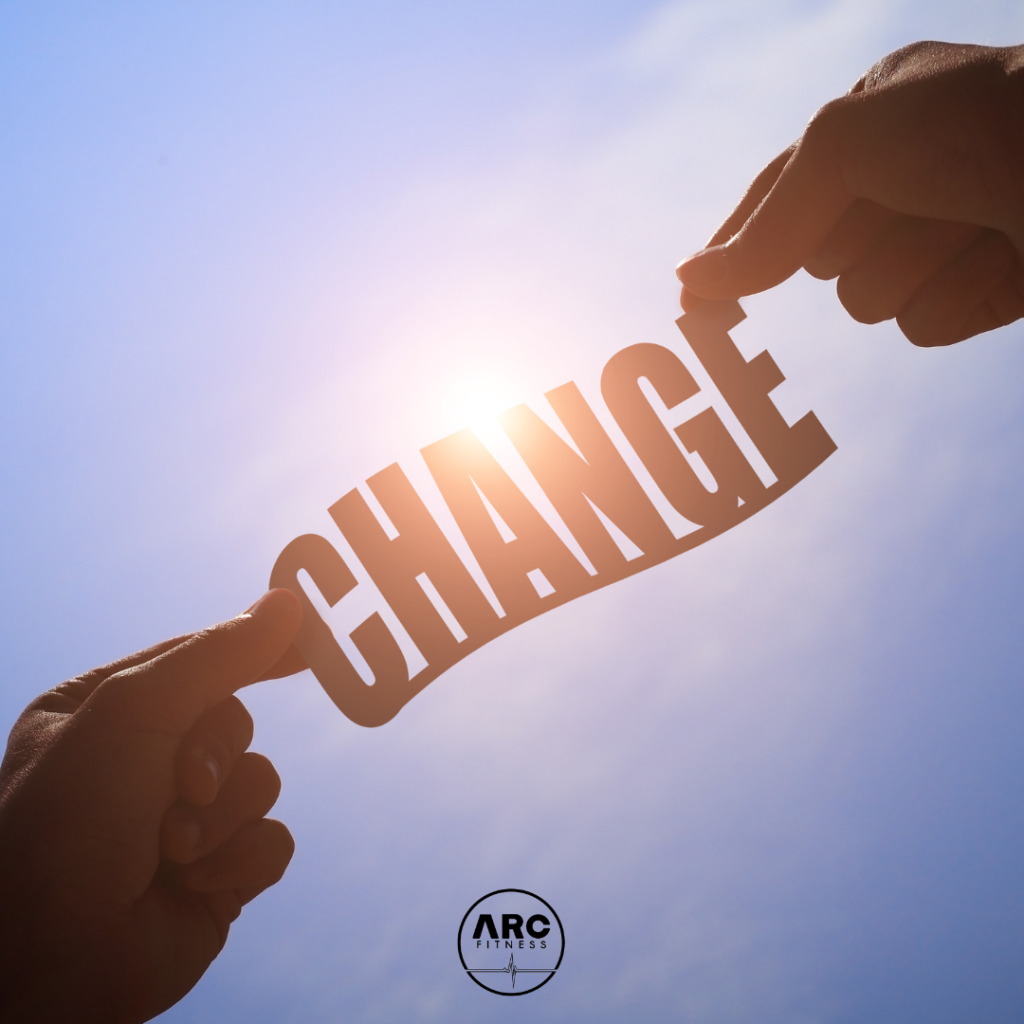No products in the basket.
Arc Fitness
The “Stages of Change” or “Transtheoretical” Model
The “Stages of Change” or “Transtheoretical” Model
The “stages of change” or “transtheoretical” model is a way of describing the process by which people overcome addiction. The stages of change can be applied to a range of other behaviours that people want to change but have difficulty doing so, but it is most well-recognised for its success in treating people with addictions. This model was developed from research looking at how change occurs in “natural recovery” from addictions. It has been embraced by healthcare providers seeking to move away from confrontational and pathological approaches toward motivational and person-centred approaches. Understanding the cycle of change on an individual, organizational, and societal level helps to support recovery by helping us navigate behaviours at the various stages within.
When life requires a change in direction, sometimes it feels frightening. Changing can be uncomfortable and confusing. Even with a clear goal, the path forward may be hazy. The journey is often difficult and slow and sometimes requires professional help. Understanding the process of change is invaluable in helping you recognise someone’s readiness to make changes in their life.
The Model
The model was created to help people make habitual behaviour changes in their lives, such as with drug and alcohol use. It recognises that change doesn’t happen instantaneously. It’s a process, and we go through certain stages. Recovery from substances is built on a foundation of personal responsibility.
Five official stages are described in DiClemente and Prochaska’s Stages of Change Model:
- Precontemplation
- Contemplation
- Preparation
- Action
- Maintenance
(We will discuss relapse later)
It’s important to know where you stand in relation to starting the process.
Stage 1: Pre-contemplation
This is the entry point of a person into the change process. The individual has not even considered the prospect of change and is unlikely to perceive a need for change. It is usually someone else who perceives a problem. They may not have even considered that their substance use is causing problems, or they may be burying their head in the sand. At this stage, a person is not likely to respond positively to anyone being confrontative or demanding change. Trying to get someone into treatment at this stage is pointless as they are not ready to change. For supporters, it’s important to acknowledge that the person doesn’t seem to be ready to change their behaviour. Speak to them about the impact of their current behaviour.
Change Indicators:
- Total resistance to doing anything.
- No willingness to meet, talk to a professional or get assessed.
- Angry at any indication from another that there is a problem.
- Blaming others.
- “Everything is okay” statements.
- Willingness to work on other things, but not the specific problem.
- Refuse to let a professional in and work with him/her.
- Lack of awareness.
“I feel worried about your substance use sometimes. That time I thought you had overdosed was scary for me to see. Maybe think about how to keep it safer when you’re using it.”
Stage 2: Contemplation
Once the person has some awareness of the problem, then the person enters the stage called Contemplation. It is an ambivalent state (they are in two minds or 50/50) where the individual both considers change and rejects it. If allowed to just talk about it, the person goes back and forth about the need to change without justification for change. Discussions about the benefits and costs of their drug and alcohol use are ideal at this stage. What do I enjoy about using vs. What I don’t enjoy? Supporters need to make quitting more appealing than substance use to the individual. You could ask what they like about their substance use and what they don’t like. Ask them if the things they do like (positive reinforcers) about it are worth the negative consequences. Tipping the balance here toward change and being positive is your goal.
Change Indicators:
- Saying one thing, doing another.
- Rationalising, minimising.
- Anxiety rises while trying some things that do not work.
- Both talk about change and argue against it.
Stage 3: Preparation
At this stage, the person is ready to change. This is a real window of opportunity when the person resolves the ambivalence enough to look at making a change. It’s the experimental stage – the person is trying to change. They may have already made some small changes within the last 12 months or they are planning to act within 1 month or so. Maybe reducing weekly alcohol intake, and having alcohol/drug-free days. It’s important for supporters to encourage them to cut down just a little if they can and see what the change is like. If change has happened before, think about what was learned from it and what can be done this time if they have a lapse. Encourage openness, honesty, trust, and support.
Change Indicators:
- Admitting the need for change.
- Accepting negative ramifications of their behaviour.
- Asking for help.
- Starting to look at alternatives.

